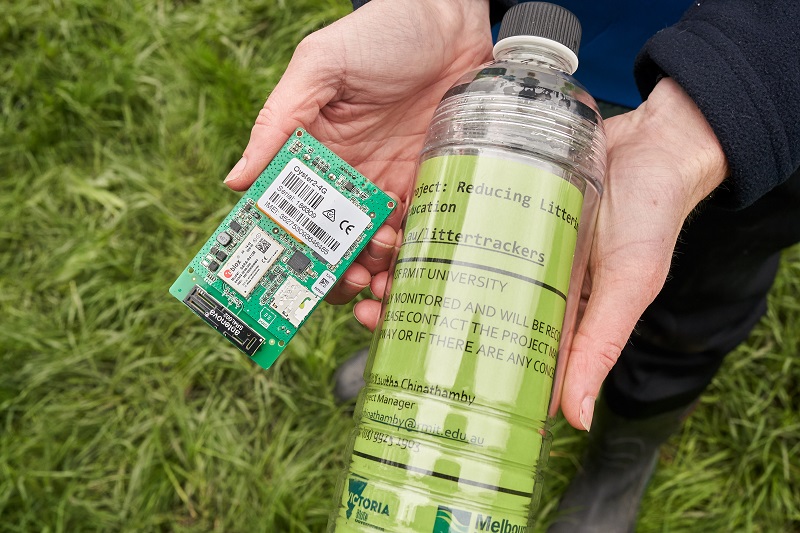
It is now possible to determine precisely how litter travels from Melbourne streets to the beaches in a Victorian-first citizen science project.
According to a recent press release, the Litter Trackers project will see RMIT University scientists working with schools and community groups to deploy 100 GPS-tracked bottles in 20 locations across Melbourne’s catchments.
Tracking the path of litter
Litter Trackers is a collaborative project between the University and Melbourne Water, and supported by the Victorian Government.
A staggering 95% of the litter on Port Phillip Bay beaches come from suburban streets, with about 350,000 cigarette butts washing into the bay every year.
Online interactive maps allow anyone to follow the bottles and discover just how rapidly litter travels through the waterways.
The project, according to its project leader, will give all of Melbourne a chance to see the true environmental scale of the litter problem.
More importantly, it will be able to show how everyone can all be part of the solution.
The Problem
All the litter dropped on the streets, whether cigarette butts or plastic bottles, will be able to find its way into the waterways and would wash up on the beaches.
Throwing litter brings about negative effects to the environment. Litter reduces water quality, harms fish and animals, and ruins the city’s natural beauty.
Having healthy waterways is needed in order to build a more sustainable and liveable future for Melbourne.
To achieve this, it is necessary to tackle the litter problem at the source.
About the Project
Through Litter Trackers, everyone can get on board with driving this change and create a cleaner, healthier future for Melbourne’s waterways and bays.
The project is the first of its kind for Victoria, and only the second time that litter has been GPS-tracked in Australian waterways.
Melbourne Water’s Litter and Waterwatch Coordinator described Litter Trackers as a terrific learning tool for students and the wider community.
Melbourne Water is a Victorian Government owned statutory authority that controls much of the water system in Melbourne, Victoria, Australia.
Learning the proper way to throw trash
People often do not realise that the rubbish they drop in their suburban street ends up right here in the rivers and streams carried by stormwater through the waterways.
The technology shows this in real time and serves as an important reminder for everyone to bin their litter.
The company spends millions of dollars a year removing litter from the waterways.
As part of the project, classroom materials and teacher resources will be developed to educate school children about littering and its environmental impacts.
The initiative is led by the University’s Aquatic Environmental Stress research group (AQUEST).
It works with schools, community groups, government and industry partners to support healthy waterways across Melbourne.
This is done through the development of innovative approaches to preventing and cleaning up pollution from our rivers, creeks and bays.
















